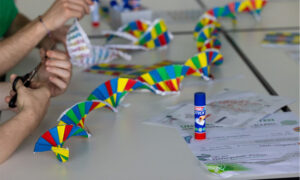
Read the latest Issue
‘Native Scientist’ organises multilingual science workshops for children of migrant communities.
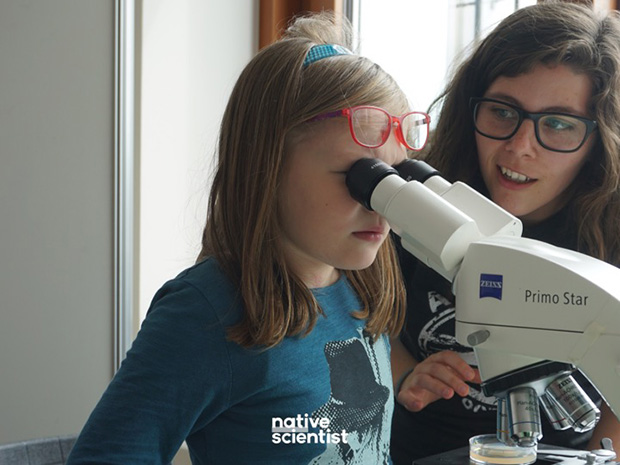
When Susana Rodrigues told her students at the Internationale Gesamtschule Heidelberg that scientists were going to visit on 22 May, the younger ones asked her: “What are scientists?” But Rodrigues wanted the children to find out for themselves. After the Native Scientist workshop, the pupils filled out a questionnaire. “Nobody had to ask what a scientist is any more,” says Rodrigues. “I think the workshop will be engraved in their memories. There was a science lesson in the Portuguese class!”
Native Scientist originated in the Portuguese community in the UK, motivated by the observation that children of migrant families would have frequent problems with school gradings. The founders of Native Scientist felt that workshops held by scientists in their native language would help these children improve their performance in school and at the same time motivate them to choose careers in STEM – science, technology, engineering, and mathematics.
The project has grown continuously since it began in 2013, mainly because the idea behind it motivates a large number of volunteers. “Now we have workshops in many different languages like French, Italian, German, Spanish, Greek, Arabic and Estonian,” says Rafael Galupa, a postdoc in the Crocker group at EMBL and an editor for Native Scientist.
Galupa started working with Native Scientist while he was living in Paris. “A Portuguese teacher living in Paris heard about Native Scientist on the radio news. She wondered: ‘Why don’t we have this here?’ So she contacted the project and they found someone who would organise it in Paris,” he explains. “When I took over, an Italian and a Polish scientist at my institute became interested in organising workshops as well, just by hearing about it.”
Native Scientist relies on the work of these volunteers: enthusiasts who want to share their work with children in their native language. Participants receive training through webinars, where members of Native Scientist brief them on how to simplify their topics or how to present sensitive topics, for example chemotherapy, in a child-friendly manner.

The workshop on 22 May was the first to be held in Heidelberg, organised by Mariana Alves, a PhD student at EMBL and a Native Scientist Project Manager for Portuguese.The volunteers included EMBL scientists Sandra Correia, a Research Technician in the Ellenberg group, Ana Neves, a PhD student in the Köhler group, and Carolina Araújo Sousa, a PhD student in the Molecular Medicine Partnership Unit, along with two volunteers from the German Cancer Research Center (DKFZ) and one from the European Space Agency (ESA).
“I decided to participate because I really like the whole idea of science outreach: sharing knowledge with society to increase awareness and critical thinking, as well as to stimulate others to follow a scientific career,” says Araújo Sousa. “And, as I expected, the Native Scientist workshop was a really great experience. It was very gratifying to see how much the students were interested and how willing they were to participate in the experiment that I proposed.”
Correia feels very happy about her first Native Scientist workshop, too. “Kids get easily excited about science and have so many questions that time flies,” she says. “In the end, I felt that just being present and available to talk to them was the most important thing.”
And what do the children say? Lucas (8) and Isabella (6) were excited to have learned about the brain. “I really liked that scientists took their time to come to us, and allowed us to try things like the microscope,” says Lucas. “Yes, that was great!”, says Isabella. The older students enjoyed the workshop, too: Bruno (13) especially liked the session about planets. “Those were interesting things to know about,” he says. “This workshop allowed me to ask questions to an expert.”
Rodrigues, the student’s teacher, feels that the scientists made a real effort to reach the students and consider the different age groups at the school. “These children are very curious,” says Rodrigues, “and today they were asking questions and making comments that are different from the usual – you can see that they’re interested!”
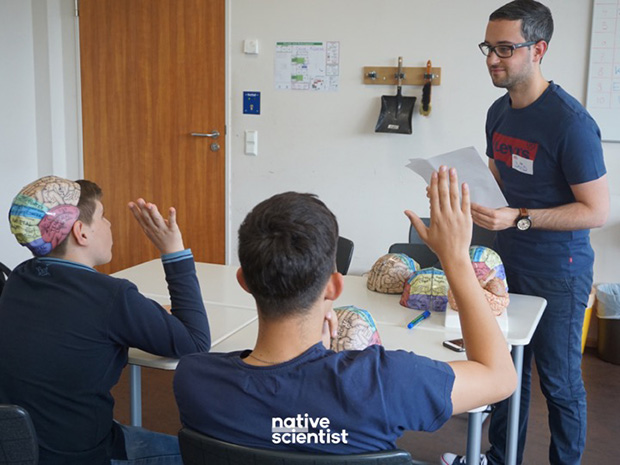
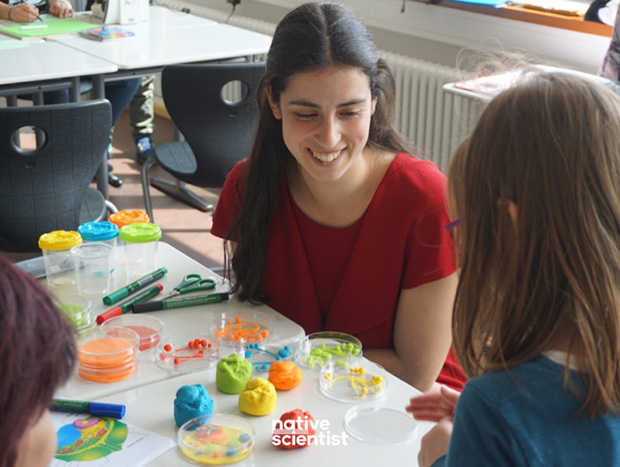
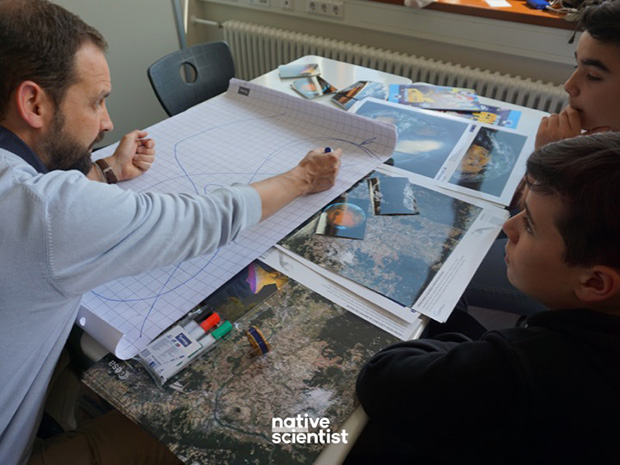
Galupa explains that working with children also helps him to look at his own research from a different point of view. “Kids sometimes come up with questions you didn’t think about. This really forces you to zoom out from what you’re doing. When you look at it from a broader perspective, you find loose ends and suddenly realise: ‘Oh, right, we actually still don’t know how that works.’”
Native Scientist also wants to teach children of migrants to value bilingualism and the cultural mix that they live in. To monitor progress, Native Scientist is conducting a study in partnership with the university of Tübingen. The goal is to assess the impact of the workshops on children: how it affects their perception of bilingualism, if it raises their motivation to pursue a career in STEM, and if it changes their perception of the work of scientists.
“Sometimes the kids come to us saying, ‘I would like to be a scientist.’ That’s a very satisfying moment,” says Galupa. “At the end of the day, it’s a lot of fun for us to organise these events. I think it’s really important for us to try and get out of our comfort zones, and then it can even get addictive at times. We’re starting with Portuguese now in Heidelberg and soon Agnese Loda, a postdoc in the Heard group, will organise an event in Italian, but it would be amazing to get more people and more languages involved.”
Want to take part in this project? Contact mariana.alves@nativescientist.com for Portuguese workshops in Heidelberg, agnese.loda@nativescientist.com for Italian workshops in Heidelberg and rafael.galupa@nativescientist.com for more information about Native Scientist or how to organise a workshop in your native language!
Looking for past print editions of EMBLetc.? Browse our archive, going back 20 years.
EMBLetc. archive